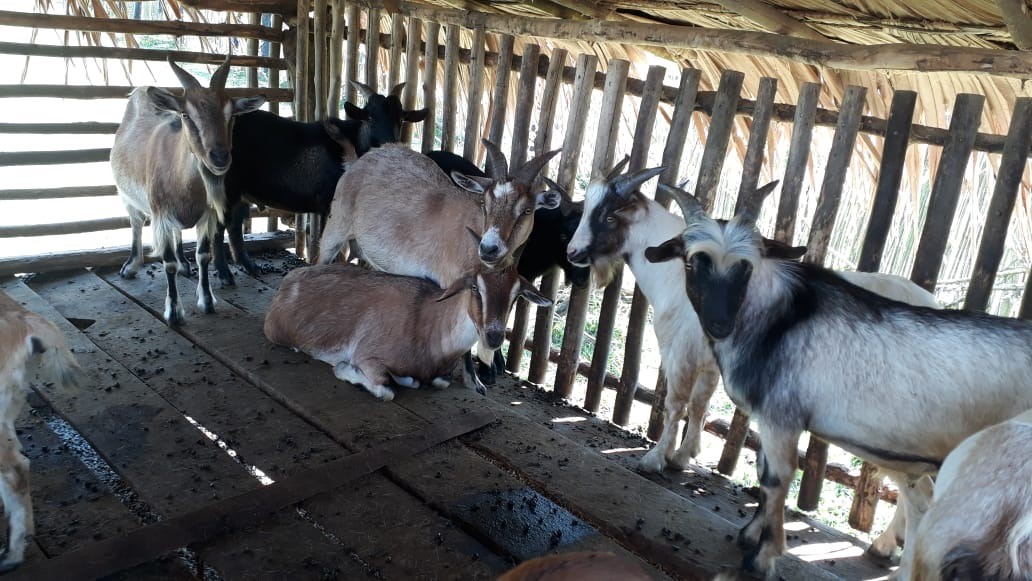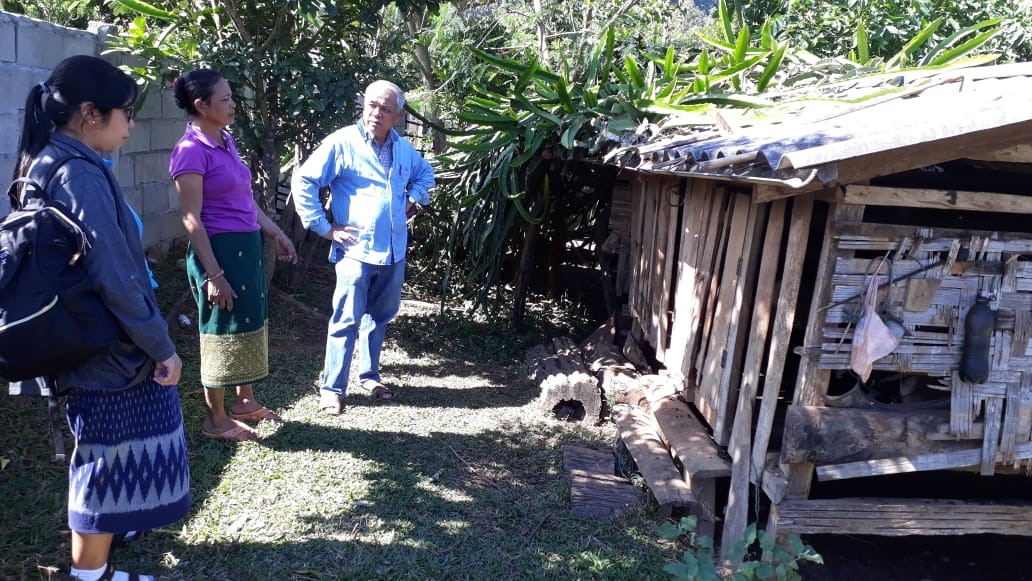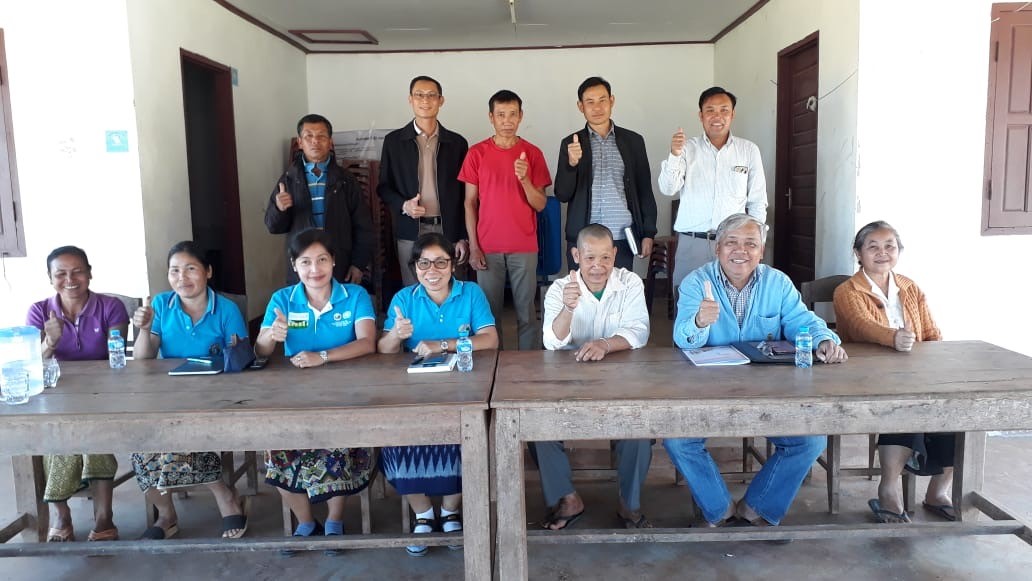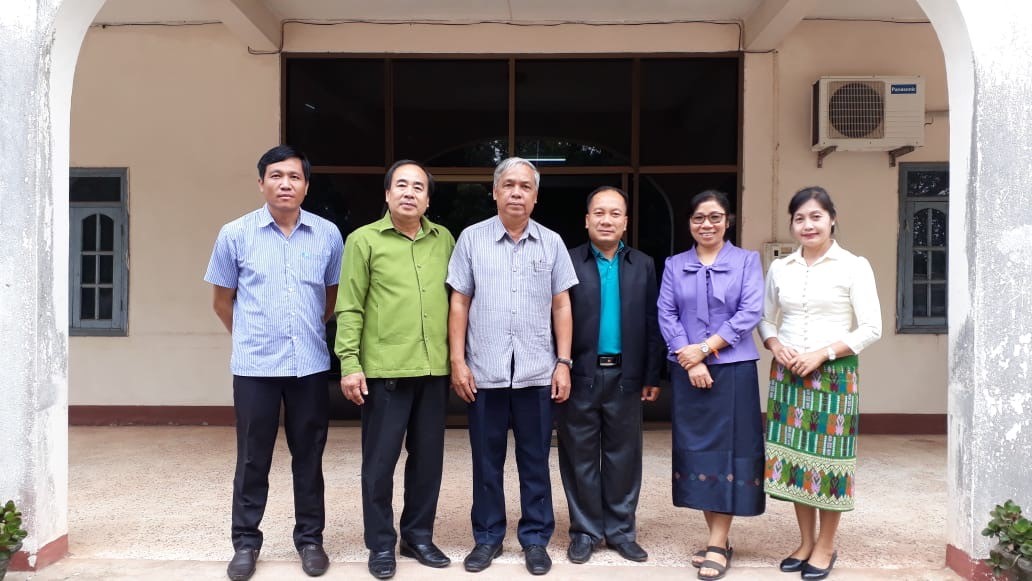AgriFoSe2030 Phase II kicking off: Improving Goat Management in Laos
With the start of the second phase of AgriFoSe2030, the programme is seeing the continuation of several projects established in its first phase. One of these projects is run by Dr. Daovy Kongmanila at the National University of Laos and focuses on goat management in Laos amongst smallholder farmers.
Initiatives toward effective goat management can provide high impact in supporting the economic sustainability of smallholder practices in Laos - especially amongst more marginalized farming groups, such as women and young farmers. As Kongmanila describes it, “goats are cattle for poor farmers”- it is often smallholders who herd goats, and due to the comparatively low level of resources and farming experience required in the caring of goats- the animal stands as a viable livestock opportunity for both women and young farmers. In the first phase, one of the key management issues focused on was that of disease prevention and animal health.

Goats in a pen. Location: Vientiane Photo: Courtesy of Dr. Daovy Kongmanila
The project has applied an approach which is inclusive in its essence and places the smallholders at the center of the initiative. The farmers are active participants and their experience of implemented activities within the project feed into final results. This, together with important support from collaborative organisations, has provided a good foundation on which further activities of translating research to policy and practice can be carried out.
“There are many development projects in Laos with focus on goat management, but many of them have not had especially successful outcomes. In our project approach we spoke extensively with smallholder farmers to identify their key challenges to define actionable solutions which can ultimately have great impact.” - Dr. Daovy Kongmanila

Listening to the experiences of the goat farmers. Location: Vientiane Photo: Courtesy of Dr. Daovy Kongmanila
The project’s plans for the next phase
In the second phase of the project, activities related to network development, extension service involvement, and inclusive knowledge dissemination will be continued and enhanced. This includes maintaining farmer groups which have been set up, meanwhile creating new farmer groups. The farmer groups will be part of the project’s upcoming focus on market access. The farmer groups and their experiences will be gathered and studied to understand the gaps between markets and smallholders who keep goats in Laos. These experiences will moreover be explored against the backdrop of research that will be undertaken concerning supply and demand for Lao goat within domestic and export markets.

Meeting with smallholders and extension officers. Location: Vientiane Photo: Courtesy of Dr. Daovy Kongmanila
Improved livelihoods through better goat management
Goats can provide a valuable source of income for smallholder farmers in Laos. With the right animal management, together with improved market access for, as well as market integration of smallholders; goat-keeping is an opportunity which can enhance the economic sustainability of Lao smallholder farms, and consequently, the smallholders’ livelihoods. Dr. Daovy Kongmanila’s project with its high impact potential for smallholders is truly a reflection of AgriFoSe2030’s mission to contribute to a sustainable intensification of agriculture for increased food production.

Daovy Kongmanila and her team. Location: Vientiane Photo: Courtesy of Dr. Daovy Kongmanila
Watch Dr. Daovy Kongmanila talk about the project in the video below:
By: Ebba Engström; Anneli Sundin